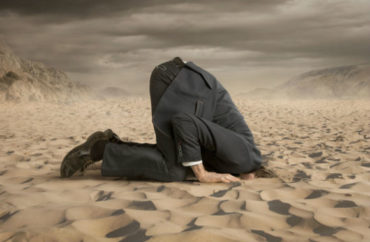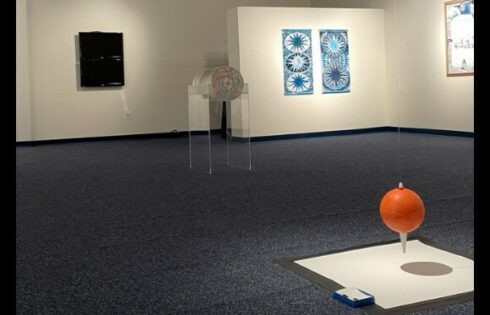
Judges question ‘practical efficacy’ of fair hearing when single official does everything
The era of serious punishments based on a single official’s investigation is over at the University of Southern California.
For the second time in less than a month, a California appeals court ruled that the private university denied a student accused of rape a fair hearing, and that the same Title IX official conducted a shoddy investigation.
The three-judge panel ordered a lower court to remove USC’s findings against “John Doe” from his record, and awarded him his costs on appeal. The university will also have to create procedures to allow accused students to cross-examine both their accusers and witnesses in some form.
This went even further than the previous appeals panel in the December ruling against USC, which explicitly declined to rule whether accused students have a right to cross-examine anyone beyond accusers.
“When credibility of witnesses is essential to a finding of sexual misconduct, the stakes at issue in the adjudication are high, the interests are significant, and the accused’s opportunity to confront adverse witnesses in the face of competing narratives is key,” said the opinion, written by Justice Thomas Willhite.
Challenging the December appeals panel even further, Willhite questioned whether the right to a fair hearing has “any practical efficacy” when a single official acts in the “overlapping and conflicting capacities” of prosecutor and tribunal.
“Under such circumstances, the performance of this key function is simply too important to entrust to the Title IX investigator in USC’s procedure,” Willhite wrote. His opinion was joined by Justice Audrey Collins and Orange County Superior Court Judge Kim Garlin Dunning, sitting by designation.
“The decision against USC appears to be consistent with the new Title IX guidelines” proposed by the Department of Education last fall, which are open to public comment through January, Doe’s lawyer Mark Hathaway wrote in an email.
‘The courts are making substantive changes,’ but USC did everything right
Both rulings fault the choices made by Title IX investigator Kegan Allee, particularly her failure to interview relevant witnesses and pursue exculpatory evidence.
USC staff identified in the past year’s rulings against the university appear to have not been sanctioned for their failures as documented by judges.
Allee is now listed as assistant director of the Title IX office. Two officials caught calling an accused student “motherfucker” – Gretchen Dahlinger Means and Patrick Noonan – still have their titles.
USC declined to answer College Fix questions about how it’s specifically changing procedures in response to the rulings, and on what timeline; when it promoted Allee (in video below), whether she’s still handling investigations, and how the rulings may affect her employment and personnel file; and whether Means and Noonan have experienced sanctions.
MORE: Huge judgment against USC after calling accused student ‘motherfucker’
A spokesperson provided a statement Saturday that says the investigation at issue in Friday’s ruling, which started in fall 2014, “was conducted in compliance with its student conduct policies and with state and federal laws in place at the time of the investigation.”
USC emphasized that “no case in California required a private university to conduct a live hearing” when the lawsuit was brought, “or to permit the responding student to confront and cross examine either the complainant or witnesses”:
The courts are making substantive changes to the requirements for Title IX investigations. USC will keep abreast of these evolving judicial interpretations and requirements, and most importantly, remains committed to preventing all forms of misconduct on our campuses, to providing outstanding care to all students, and to ensuring we have policies and procedures that prioritize respect for our students and our entire university community.
https://www.youtube.com/watch?v=B7YgODO00kk
Removal of sex-offender designation will help him ‘to some degree’
Though the accused student is identified pseudonymously in Friday’s ruling, he has been previously identified as former USC football player Bryce Dixon.
USC tried to head off Dixon’s lawsuit from the start, arguing he wasn’t eligible to return to USC. It expelled him in 2015 for “nonconsensual sex acts” with the accuser, “Jane Roe,” but the following year Dixon was sentenced to six years in prison for a string of violent robberies, according to the Los Angeles Times.
The university expelled him again after his conviction for “independent violations” of the student conduct code. It maintains that the lawsuit is moot because of this second unrelated expulsion.
Neither the trial judge nor appellate judges bought the university’s argument. USC has branded Dixon a sex offender, which will have “an immediate and lasting impact” on his life, from personal relationships to educational and employment opportunities, Friday’s ruling said.
Removing his sexual-misconduct expulsion from his record would make it easier for Dixon to transfer and restore his reputation “at least to some degree” for the public, it said.
A history of hooking up with football players – and being reprimanded
As with December’s ruling against USC, this Title IX proceeding involved alleged bruises on the accuser but no physical evidence.
Dixon was a freshman on a football scholarship when he had sex with Roe, a senior and student athletic trainer, just after midnight on Oct. 24, 2014.
Trainers had been warned not to “hook up” with athletes or they would lose their jobs. But according to Roe’s roommate of three years, “E.C.,” she had a history of sleeping with football players and had been “reprimanded for unprofessional conduct” before her encounter with Dixon.
The opinion notes that much of Allee’s interview with the roommate, including Roe’s relevant sexual history, was redacted in Allee’s notes. The investigator did not record interviews and only provided summaries of her raw notes in her report.
The Student Behavior Appeals Panel also refused to give the roommate’s redacted interview to Dixon, including an alleged “group text” warning to trainers, claiming it was irrelevant.
MORE: Appeals court blasts USC for indifference to exculpatory evidence
Roe texted Dixon around 11:30 p.m. Oct. 23. She later told Allee that she was going to his place to smoke marijuana with him after getting “tipsy.” She said he forcefully groped her as they walked to a taco stand together, yet Roe agreed to return with him to his apartment, believing they would only smoke together, not have sex.
E.C. and Roe’s other roommates had “teased” her about the likelihood she would “hook up” with Dixon before she went over. To convince them she wouldn’t, Roe texted one of them continually while she was with Dixon. “None of Roe’s texts expressed discomfort about the way Doe touched her,” the judges note.
Dixon denied in his interview that Roe smoked any marijuana with him. His intentions for that night were clear, as revealed by a series of “flirtatious texts” that Allee left out of her report, the judges note. Dixon told Roe she “should wear nothing” and “come over naked” to his place, and she responded “Hahaha no I’m not going over to your place naked” and she couldn’t “guarantee anything.”
While claiming she couldn’t remember several details of the night, Roe told Allee that Dixon made her touch his penis, roughly grabbed her breast and then had rough sex with her while she protested. He put his hand over her mouth at one point. Roe said she was “repulsed” by how quickly Dixon moved to sexual intercourse and claimed he didn’t use a condom.
Appeals court orders USC to… by on Scribd
Athlete Roe was dating said her claims sounded ‘consensual’
Roe’s narrative was undercut by students in addition to E.C., including the athlete she was currently dating. She apparently mentioned calling him to tell him what happened, but the judges note that there’s no evidence Allee asked Roe to identify him.
Dixon tracked him down, and “K.J.” submitted a witness statement during Dixon’s appeal that said he “questioned the veracity” of Roe’s rape claim: The encounter “seemed to be consensual” based on his conversation with Roe.
K.J. also said Roe was no longer a trainer because of a “previous sexual encounter” with another athlete. Dixon submitted another new witness statement from “L.W.,” who corroborated why Roe was no longer a trainer. He waited until the appeal to disclose this because Allee gave “undue weight” to Roe’s witnesses, who simply “regurgitated” what Roe told them.
Another ex-boyfriend of Roe’s refused to testify, saying only that she called him to say she had been raped.
Dixon’s roommate and his girlfriend were in the living room when Dixon and Roe returned from the taco stand. “D.N.” testified that Roe was “moaning” and making “normal sex sounds” in Dixon’s bedroom before he and his girlfriend fell asleep. When he woke up to use the bathroom later, D.N. said they were talking in Dixon’s room. He wasn’t surprised they had sex because he had previously witnessed “flirtatious and sexual” interactions between them.
D.N. also contradicted Roe, claiming he saw a “nasty” used condom on Dixon’s desk the next day. The judges again scold Allee, claiming there’s no record of her asking D.N. to even identify his girlfriend for an interview.
While Roe claimed her shirt had a stain from where Dixon (in video below) ejaculated, she never produced the evidence, the judges note. Her roommates testified that she was initially reluctant to accuse Dixon for fear of “ruining” his life.
MORE: Calif. appeals court orders cross-examination in campus rape cases
Second investigation from misunderstood slang?
Dixon was hit with six charges after Roe filed a complaint, including endangering others, illegal use of narcotics and sexual misconduct. One of the immediate sanctions was a ban on playing football games.
In his first interview with Allee Nov. 11, Dixon brought her attention to an encounter with Roe two weeks before the incident.
She had invited him to go swimming, and he went with Roe to her apartment to charge his phone. Dixon started “grabbin’ on her” and she did the same to him. She left for 10 minutes, came back and told him they weren’t going swimming anymore.
Using language that would later spawn a second investigation, Dixon said he started “fingering” Roe, who moaned in pleasure, and Roe “fondled his penis.” Allee didn’t ask him to clarify what “fingering” meant, and wrote “digital penetration” in her notes.
The encounter ended when Roe said she wasn’t feeling well, and Dixon left. Roe told him the next day she had “blacked out” and asked what happened, and he said they had “mess[ed] around.”
When Allee later told Roe that Dixon had digitally penetrated her Oct. 9, Roe went “bright red” and started shaking and “sobbing,” saying she didn’t remember that. Allee opened a second investigation, with Roe’s consent.
The judges again fault Allee’s choices here. The investigator never asked Roe or anyone else to quantify how much she had drank that day, even though her “capacity to consent was at issue” and roommate E.C. said Roe was “fine.” (Allee ultimately exonerated Dixon in the second investigation for insufficient evidence that he knew she “lacked the capacity to consent.”)
Dixon’s appeal denied that he claimed to have digitally penetrated Roe. He said Allee’s report omitted another hit to Roe’s credibility: she withheld a picture of the bathing suit she wore Oct. 9 when she purportedly sent Allee pictures of all her bathing suits. Dixon had given Allee a detailed description of this bathing suit, which was also left out.
Dixon didn’t dispute that he didn’t ask for Roe’s permission to try different things during their Oct. 24 sexual encounter. But he claimed she expressed her enjoyment, to the point where he covered her mouth to silence her loud moans.
MORE: UCSB hid accuser’s hallucinatory prescription from accused
Did USC tolerate trainer-athlete hookups, or did Roe fear getting fired?
A key dispute that Allee played down was whether Roe had motive to falsely accuse Dixon. When presented with Roe’s account of Oct. 24, Dixon said she might have accused him so she wouldn’t get fired as a trainer.
Allee did not bother investigating Roe’s factual claims about why she had no motive to falsely accuse him. According to Roe, several trainers had “hooked up with athletes and are fine,” and Allee took her claim at “face value,” the judges wrote.
Roe told a different story to her friend “Mia.” The judges note that Allee’s report doesn’t mention that Roe texted Mia that she was “worried she might be fired, or be unable to attend graduate school,” if her sexual encounter with Dixon became known. “There is no indication” Allee tried to identify Mia, much less contact her.
The judges again scold Allee for “inexplicably” failing to check with the athletics department on its policies for trainer-athlete sexual relations, “let alone ascertain the existence of the agreement Roe purportedly signed” promising not to hook up with athletes.
The investigator made the “unattributed, unequivocal pronouncement” that trainers were known to sleep with players and weren’t fired. Allee was at best “confused” when she said USC wouldn’t retaliate against a student victim of “non-consensual sexual acts,” which misstates what Dixon was claiming about Roe’s motive to lie, the judges said.
Single-investigator model ‘incompatible’ with cross-examination
The judges dismissed Dixon’s claim that Allee and other officials were “actually biased” against him. It’s not enough that Allee had done “extensive work as an advocate for victims of sexual assault prior to her employment by USC,” as Dixon cited: Her bias is his “mere belief.”
But USC’s entire sexual misconduct process is “fundamentally flawed” when serious punishments are on the line, they said.
The university must allow the parties to cross-examine “adverse witnesses” either in person or through videoconferencing, directly or indirectly, “before one or more neutral adjudicator(s) with the power independently to judge credibility and find facts.”
The judges noted that other California appeals courts, as well as federal courts, have reached similar conclusions in sexual-misconduct cases that turn on the credibility of witnesses and accusers.
Colleges from the private Claremont McKenna to the public University of California-Santa Barbara have been ordered to dump procedures that allow credibility determinations to be made based on written statements, rather than visual assessments of a party’s live answers in response to questions.
The opinion quoted extensively from the 6th U.S. Circuit Court of Appeals’ ruling against the University of Cincinnati in 2017, which extolled the ability of “adversarial questioning” to safeguard the accuracy of factual determinations.
The right to cross-examination is hollow in the single-investigator model used by USC and embodied by Allee, who plays “divided and inconsistent roles” in proceedings, the judges wrote.
Such a person acts as “investigator, prosecutor, factfinder [sic] and sentencer,” a jumble of roles that is “incompatible with adversarial questioning designed to uncover the truth,” according to the opinion: “It is simply an extension of the investigation and prosecution itself.”
Allee’s flawed judgments show the danger of the system, the court said. The only physical evidence – photos of “small bruises” on Roe’s body – are consistent with both “vigorous consensual sex” and sexual assault.
Yet Allee was given “unfettered discretion” and used it in “questionable ways,” dismissing Dixon’s theory that Roe had motive to invent rape “almost immediately,” even though Allee had multiple “investigative leads” along those lines.
She neither interviewed “presumably identifiable and available witnesses” to fill the gaps in her investigation, nor bothered to confirm athletics department enforcement of rules about trainer-athlete relations. “Deficiencies such as these are virtually unavoidable in USC’s system,” the judges wrote.
USC compounds the problem of the single-investigator model by kneecapping its Student Behavior Appeals Panel, the opinion said.
The panel is limited to considering the investigator’s report and other written materials on appeal, and it can only review for “substantial evidence,” which can be as little as one witness’s narrative that the investigator judges credible. It will “virtually never be in a position to set aside an investigator’s factual findings” or modify a sanction, the court said.
MORE: Appeals court rules USC denied fair hearing to student in confusing orgy
IMAGE: rangizzz/Shutterstock
Like The College Fix on Facebook / Follow us on Twitter






Please join the conversation about our stories on Facebook, Twitter, Instagram, Reddit, MeWe, Rumble, Gab, Minds and Gettr.